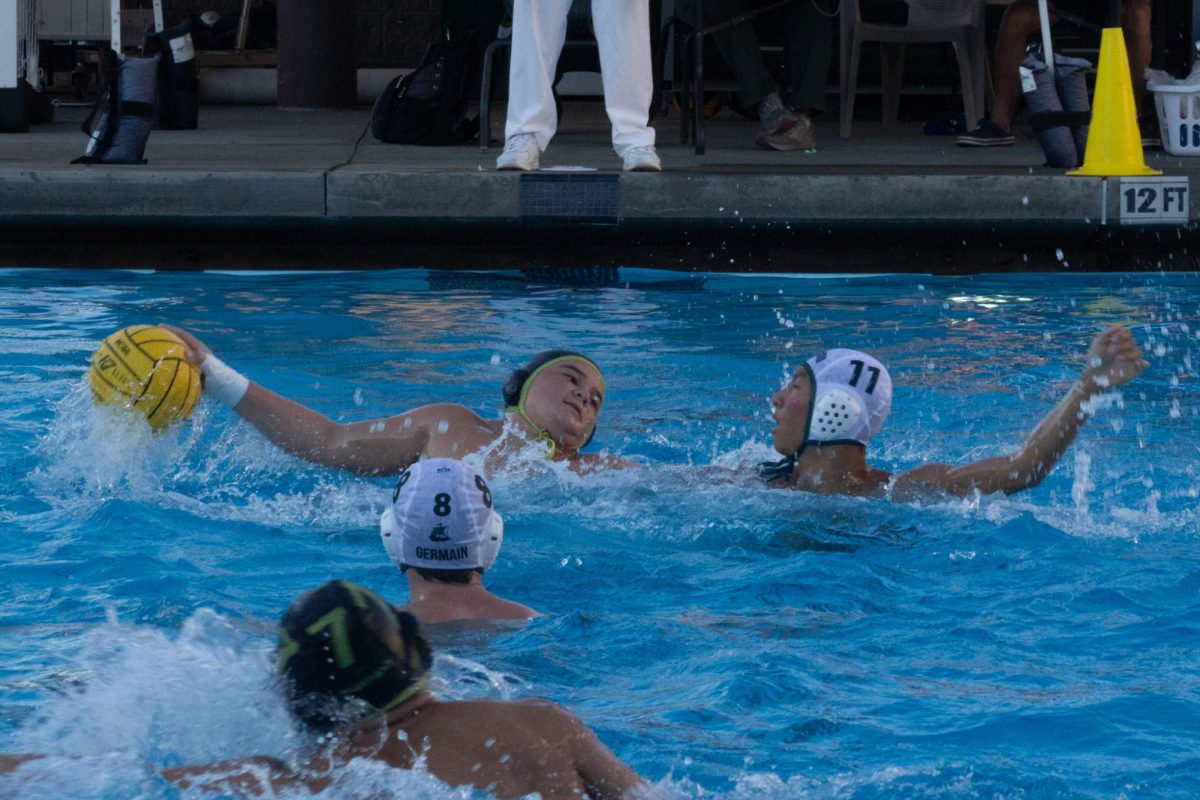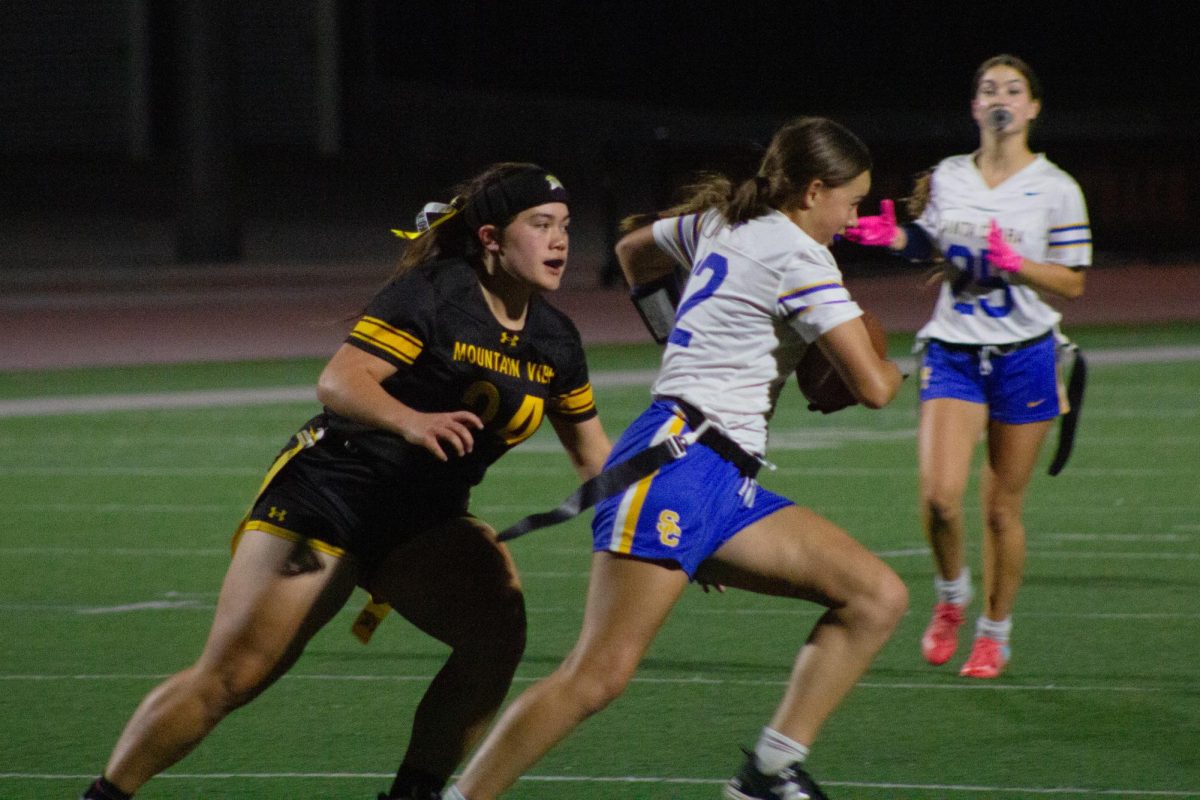FULL EDITION
Of the clubs seeking approval at the 2012-2013 School Year’s first Congressional meeting, the NERDS (Non-gravitational Enchanters of Relative Dimensions in Space) Club was denied approval for the second time.
“We’re really nerdy, and it’s nice to talk to other people who are nerdy, so we decided to start a club,” sophomore Mia Convery, the unofficial President, said. “We’ve all been teased a lot, and we just wanted a place to de-stress where no one’s going to judge you,” Convery said.
On August 21st, 31 representatives of the 64 second period classes and 14 club presidents of the 46 clubs, under the supervision of the Associated Student Body Officers, started off the year’s Congressional meetings by denying approval of both NERDS Club and Spanish Club, receiving fewer than 66 percent of the Representatives voting in their favor.
Not only were these decisions illegitimate under ASB’s Constitution, they serve to show the stagnation in our school Congress’ failed democracy; one in which representation does not exist.
According to the ASB Constitution, clubs:
“must be approved by a simple majority of the … Legislative Branch,”
or more than 50 percent of votes cast.
In spite of this, Congressional meetings have been enforcing a 66-percent-majority-approval rule, not the 50% in the Constitution, a key oversight in the process of club approvals, which has caused many clubs wrongful denial.
The Constitution also states that:
“A quorum for a joint session meeting shall consist of ⅔ of the members of the House and ⅔ of the members of the Council (of Presidents).”
In other words, at least ⅔ of all second period classes and clubs must be in attendance for the Congressional body to meet and deliberate.
In the last six years, we have never had 66 percent of the school’s classes represented at a meeting. Therefore, any decision of the Congress could theoretically be nullified.
ASB does not advertise the selection of class representatives, and many teachers do not act upon seeking representatives for their classes when they are informed to do so. This must change.
“The approval process is not in compliance with the Constitution, but I don’t want to penalize students for that. There would be an uproar if we didn’t approve clubs,” said William Blair, ASB Advisor.
We face the fact that our school’s government is dysfunctional; ASB understands that it does not function by its own Constitution, and yet no one makes the effort to change the status quo. Our school’s Congress does not follow our own Constitution, and instead of following the Constitution or attempting to fix the problem, ASB instead compensates in order to please the masses. Does that not reek of indifference towards participation in government and society, a key part of our democracy that we as a high school should strive to prepare students for?
History has shown us that actions, not apathy, create change. Perhaps boycotting club approvals, denying the right of the Congress to make any decision without a legal quorum, is the cry for true democracy our school needs.
Not only must ASB and Congress revise their club approval process to adhere to the simple-majority-approval rule, but the student body and the school as a whole must reevaluate their indifference towards the House of Representatives and student representation.
The Congress plays a vital role in the MVHS community, but the voices of the student body are being lost regarding club approvals, budgets, the ASB Constitution, and more without proper representation.
“When a club is approved, it’s students speaking on behalf of students saying this is a club beneficial to the student body,” Blair said.
But without proper representation, these students are not speaking on behalf of the student body. Rather, a few students, likely unofficially recognized as Representatives, hide behind the choice to abstain from voting on many clubs, seeming impartial while merely acting as a block to the approval process. In effect, they are stating that a club of self-proclaimed “NERDS” interested in science fiction and Doctor Who is not beneficial to the student body, without taking a stance or backing their opinion.
All that the “representatives” accomplish through denying a legitimate club’s approval is affirming aspiring club members’ concerns and needs for an accepting, non discriminating, unspiteful space.
“Students have the right to not pass a club, but they can’t abuse that power,” said Annika Reno, ASB Clubs Commissioner.
Yet, currently, the power is abused. Students feel the need to filter out “unworthy” clubs or not vote yes every time, but every club deserves to be passed as long as they are reasonable because each contributes a unique quality to our campus, improving the complexity and acceptance of our community.
The unfair decisions to deny clubs would be resolved with a larger pool of the student body represented, resulting in more accurate decisions that reflect the views of the student body as a whole.
Were ASB to approach all second period teachers, or in the absence of action by ASB, were second period teachers to mandate the selection of a class representative in order to imbue their students with a sense of participation in their community, more interested and involved individuals would step up to represent their classes and attend Congressional meetings. These concerned students would make more proper and fair decisions, especially regarding clubs.
Only through expressing this right of representation will decisions in the interest of our student body be made.
[fb-share]
[tweetbutton]



































